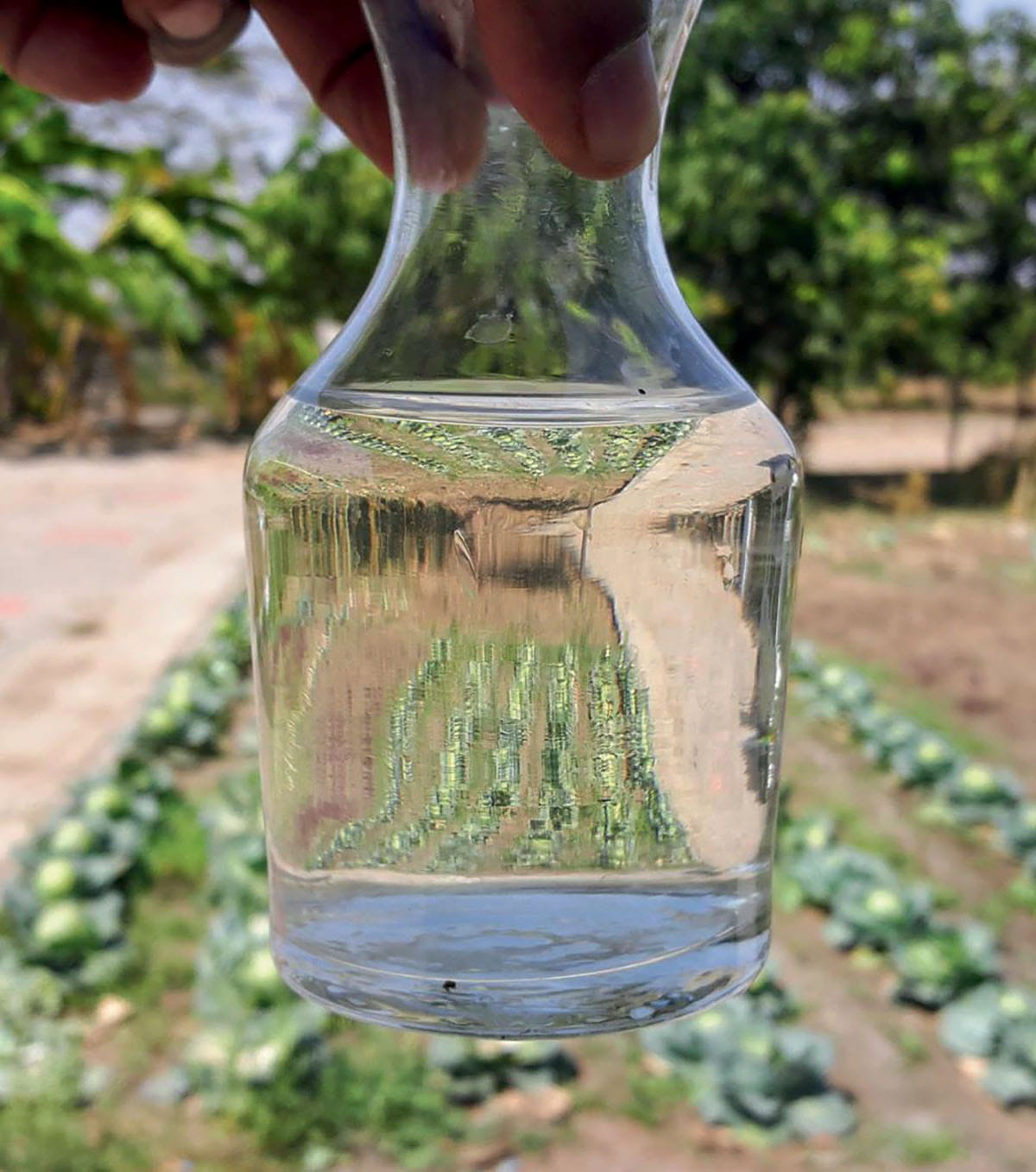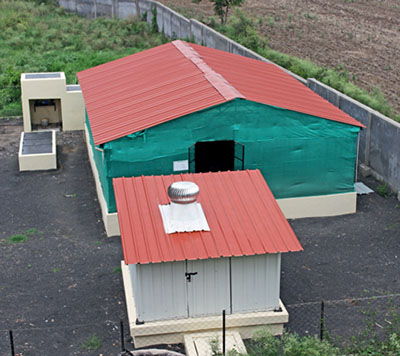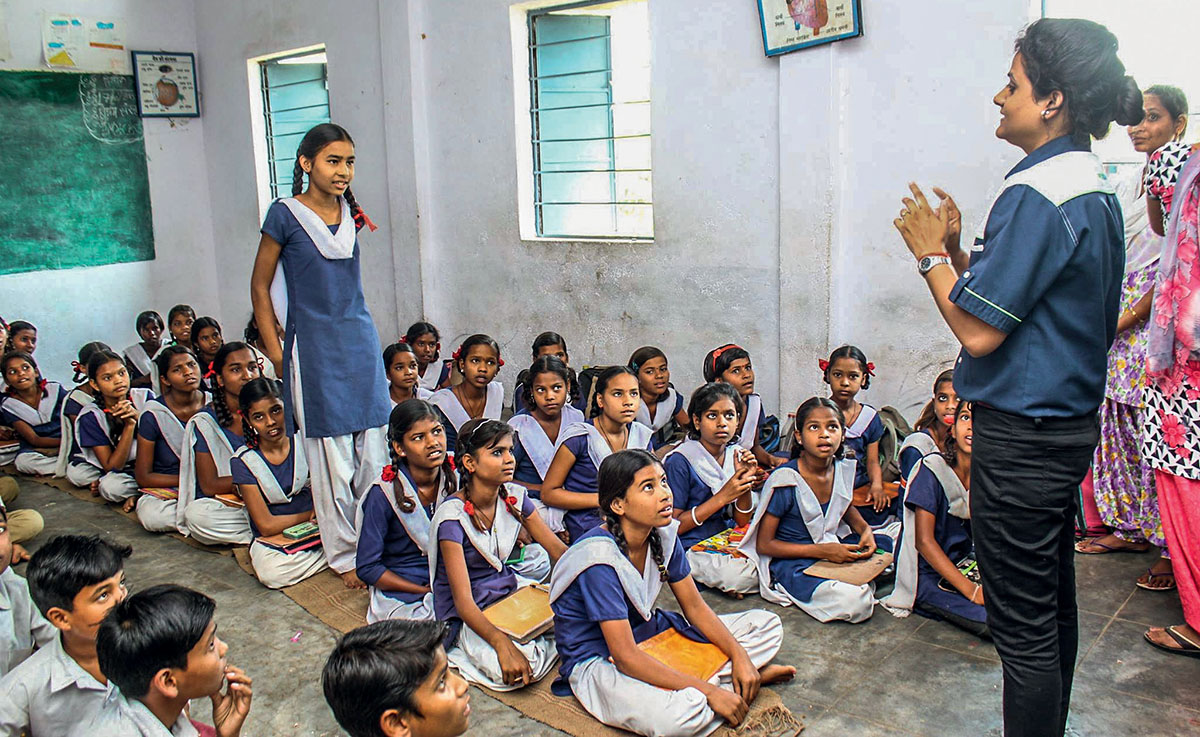Stories > Water is Life
Water is Life
Singapore-based social enterprise Ecosoftt helps to empower marginalised communities by providing holistic water management solutions that improve their lives.
BY CHARLENE CHUA
PHOTOS ECOSOFTT
 |
|
Ecosofttʼs holistic solutions help rural communities in countries such as India access clean water. |
ccording to the United Nations, about 700 million people in 43 countries currently suffer from water scarcity. So Indian national Stanley Samuel and Singaporean Marcus Lim decided to found Ecosoftt (short for Eco Solutions for Tomorrow Today), a Singapore-based social enterprise that provides solutions to marginalised rural communities with no access to clean water.
Prior to founding Ecosoftt in 2012, its founder and chief executive officer, Samuel, 53, held senior management positions at major multinational companies around the world, while Lim, 45, its managing director, was a senior management consultant at top-tier consulting firms in South-east Asia and Greater China.
Recognising that few countries in the world can afford to invest heavily in water security, the two men have made it their goal to address water-related challenges faced by policymakers, industries and organisations worldwide. While other companies focus on providing clean drinking water, Ecosoftt adopts a more holistic approach to tackling water shortage.
Says Samuel: “Water is a finite resource…We already face huge challenges with 7 billion people today. With the population expected to reach 10 billion this century, we have to find ways to reduce dependence on conventional sources of water, make better use of every drop, reuse it for non-potable purposes, and manage the ‘water loop’ in an integrated way.”
Its programmes aim to improve water security for communities by diversifying water sources through harvesting rainwater and managing groundwater usage with care. They also optimise water use through recycling wastewater and reducing water consumption. To prevent contamination, pollution and depletion of water sources, its programmes also ensure that wastewater is treated and discharged responsibly.
Ecosoftt has worked closely with educational institutions, municipal corporations, non-governmental organisations, healthcare organisations as well as institutions in both the public and private sectors, to implement over 20 projects in Hong Kong, India and Singapore. It provides water and usedwater management solutions in urban settings, and works on water sanitation and livelihood improvement projects in rural areas.
“Since this programme was implemented, we have benefi tted beyond words. Previously, we suffered from diseases and waterborne health issues. Now, we save two to three hours a day and have more time for our family and community. Our children are able to go back to school. Our whole community is very pleased and happy.”
Vaishali Burman, president of village committee at Rampur Tola village, central India
UPLIFTING COMMUNITIES
The impact of its interventions on the communities are manifold, say its founders. They include improvements in gender and class equality, better health and wellbeing, increased household incomes, as well as greater environmental protection.
For instance, Ecosoftt’s social impact arm in India, the Saamarth Social Service Organisation, partnered Indian non-governmental organisation Gram Vikas on a communityled transformation project in Silua Tek village in May 2013. Located in the state of Madhya Pradesh in central India, Silua Tek is a rural community of about 200 inhabitants from 37 families. Each family lives on an income of less than US$5 per day.
 |
|
Ecosoftt has worked with institutes of higher learning such as St Aloysius Institute of Tech, Jabalpur to raise awareness of water issues, as well as provide rainwater harvesting and wastewater treatment solutions on-site. |
It previously had no access to clean drinking water and there were no proper toilets or shower facilities in the village. Its only sources of water were a polluted stream nearby and a handful of hand pumps, which often ran dry or provided dirty water. The stream was contaminated by sewage from animals, residential areas and other establishments upstream. Villagers spent on average two to four hours each day to collect water to meet their daily needs. They often fell ill from waterborne diseases.
With each family contributing money and labour, Saamarth helped each household to build a toilet and shower that provide a constant source of running water. It also installed a wastewater treatment system. Now, the villagers are healthier and have more time for more productive activities. Women also feel safer as they no longer have to venture out at night to use the toilet.
Pinky Burman, president of the village committee at Silua Tek, says that the people there are grateful to Ecosoftt and Saamarth for transforming their lives. She says that there is no more contamination of groundwater. And with better health, more people are now gainfully employed.
In 2015, Ecosoftt designed a water management system that was built by the community in Rampur Tola village, also in central India. Apart from providing villagers with access to clean drinking water and toilet and shower facilities for every household, it also installed a wastewater treatment system that recovers and treats sewage. The treated water is then used for gardening and irrigation.
Vaishali Burman, president of village committee at Rampur Tola, says: “Since this programme was implemented, we have benefitted beyond words. Previously, we suffered from diseases and waterborne health issues. Now, we save two to three hours a day and have more time for our family and community. Our children are able to go back to school. Our whole community is very pleased and happy.”

Ecosoftt conducts programmes to educate students in India about responsible water usage.
Apart from designing hardware to benefit communities, Ecosoftt also runs education programmes to raise awareness among the general population towards water usage and environmental protection. The programmes touch on topics such as global water challenges, water conservation in the community and filtration technologies.
Ecosoftt has reached out to over 20,000 students in schools in the UK, India and Singapore, over 10 institutes of higher learning in India and Singapore, as well as multiple government agencies worldwide to educate and engage communities about responsible water usage.
Looking ahead, Ecosoftt’s founders say that they remain focused on delivering water solutions to needy communities. It has plans to expand to projects elsewhere in Asia, including the Philippines, Indonesia and Thailand. It is also looking at potential markets in the Middle East and Africa.
Says Lim: “At Ecosoftt, we aim to direct technology, capital and talent to where they are needed most, which are communities facing challenges in water, sanitation and livelihoods.”
